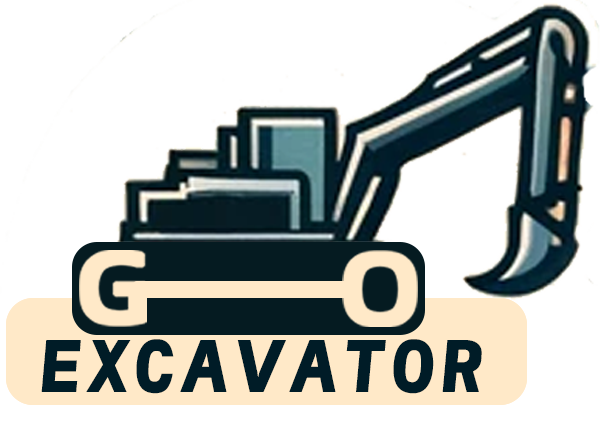
Small excavators, often referred to as mini excavators, are essential machinery in construction, landscaping, and various other industries. Their compact size and versatility make them ideal for tasks in confined spaces where larger equipment cannot operate efficiently.
1. Understanding Small Excavators
1.1 What is a Small Excavator?
A small excavator, or mini excavator, is a tracked or wheeled vehicle with an operating weight ranging from 1 to 10 tons. It features a standard backfill blade and a boom swing. The compact design allows it to perform excavation tasks in tight spaces where larger excavators cannot maneuver.
1.2 Common Uses
- Landscaping: Digging holes for trees, installing irrigation systems, and creating ponds.
- Construction: Trenching for utilities, foundations, and footings.
- Demolition: Removing small structures, pavement, and sidewalks.
- Agriculture: Digging ditches, clearing land, and installing fencing.
2. Factors Affecting the Cost
Several factors influence the price of a small excavator:
2.1 Brand and Manufacturer
Well-known brands like Caterpillar, Bobcat, Kubota, and John Deere typically command higher prices due to their reputation for quality, durability, and extensive dealer networks.
2.2 Size and Weight
- Micro Excavators (1-2 tons): Ideal for extremely tight spaces.
- Mini Excavators (3-5 tons): Versatile for small to medium projects.
- Compact Excavators (6-10 tons): Offer more power and reach.
Larger machines within the small excavator category generally cost more due to increased capabilities.
2.3 Engine Power
Higher horsepower engines allow for more demanding tasks but come at a higher price. Fuel efficiency and emissions standards (like EPA Tier 4 compliance) also impact cost.
2.4 Attachments and Accessories
Attachments such as buckets, augers, hydraulic hammers, and grapples enhance functionality but add to the overall price.
2.5 New vs. Used
- New Excavators: Come with warranties, the latest technology, and zero wear and tear.
- Used Excavators: More affordable upfront but may have higher maintenance costs.
3. Price Ranges
3.1 Entry-Level Models
- Price Range: $20,000 – $40,000
- Features: Basic functionality, smaller size (1-3 tons), limited attachments.
- Ideal For: Homeowners, small landscaping businesses, and light-duty tasks.
3.2 Mid-Range Models
- Price Range: $40,000 – $70,000
- Features: Moderate size (4-6 tons), more power, additional features, and attachments.
- Ideal For: Small to medium construction companies and contractors.
3.3 High-End Models
- Price Range: $70,000 – $150,000+
- Features: Larger size (7-10 tons), advanced technology (GPS, telematics), superior hydraulics, and comfort features.
- Ideal For: Large contractors, rental companies, and projects requiring high performance.
Note: Prices vary based on manufacturer, dealer location, and market conditions.

4. Additional Costs to Consider
4.1 Maintenance and Operating Costs
- Routine Maintenance: Oil changes, filter replacements, track adjustments.
- Repairs: Replacement of parts due to wear and tear.
- Fuel Costs: Vary depending on engine efficiency and usage.
- Storage: Secure location to prevent theft and weather damage.
4.2 Insurance and Financing
- Insurance: Protects against theft, damage, and liability.
- Financing Charges: Interest rates and loan terms can significantly affect the overall cost.
4.3 Transportation and Delivery
- Shipping Costs: Delivery from the dealer to your location.
- Permits: Required for transporting oversized loads.
5. Renting vs. Buying
- Renting:
- Pros: Lower upfront cost, no maintenance expenses, access to the latest models.
- Cons: Costs add up over time, lack of ownership, potential availability issues.
- Rental Rates: Typically $200 – $500 per day, depending on the model.
- Buying:
- Pros: Long-term cost savings, asset ownership, tax advantages.
- Cons: High initial investment, responsibility for maintenance and storage.
Consider your project’s duration and frequency when deciding between renting and buying.
6. Tips for Purchasing
- Assess Your Needs: Determine the tasks you’ll perform to select the appropriate size and features.
- Set a Budget: Include the purchase price and ongoing costs like maintenance and insurance.
- Research Brands: Compare different manufacturers for reliability and after-sales support.
- Inspect Used Equipment: If buying used, check for signs of wear, service history, and operating hours.
- Negotiate: Dealers may offer discounts, especially at the end of the fiscal year or during promotions.
- Consider Resale Value: Some brands retain value better than others, which is beneficial if you plan to sell in the future.
Investing in a small excavator requires careful consideration of various factors that influence cost. By understanding your specific needs and the associated expenses, you can make an informed decision that offers the best value. Whether you opt for a new or used machine, prioritize features that enhance productivity and ensure long-term reliability.
A Comprehensive Guide to Buying a Excavator Second Hand
Purchasing a second-hand excavator can be a cost-effective solution for your construction or landscaping needs. However, buying used machinery comes with its own set of challenges and considerations. This comprehensive guide will walk you through [...]
Comprehensive Guide to Hyundai Mini Excavators: Features and Prices
Mini excavators have become indispensable tools in the construction and landscaping industries. Hyundai Construction Equipment, a global leader in heavy machinery, offers a range of mini excavators known for their reliability, efficiency, and advanced features. [...]
How to Extend the Service Life of Excavator Parts
Excavators are indispensable machines in the construction and mining industries. They perform heavy-duty tasks that demand robust components and meticulous maintenance. Extending the service life of excavator parts not only reduces operational costs but enhances [...]
Kymron Excavators: Innovative, Sustainable Construction Machinery
In the dynamic world of construction and heavy machinery, Kymron has emerged as a game-changer. Specializing in advanced excavator technology, Kymron is redefining industry standards with its commitment to innovation, efficiency, and sustainability. Company Overview [...]
Bulldozer vs. Wheeled Excavator: Which Machine is Better for Moving Soil?
Moving soil is a fundamental task in construction, landscaping, and earthmoving projects. Choosing the right machinery for the job can significantly impact efficiency, cost, and project timelines. Two of the most commonly used machines for [...]
Why Are Small Excavators Favored? A Comprehensive Guide
In the world of construction and landscaping, efficiency and versatility are key. Among the myriad of machinery available, small excavators have risen in popularity. But what makes them so favored? Introduction to Small Excavators Small [...]




